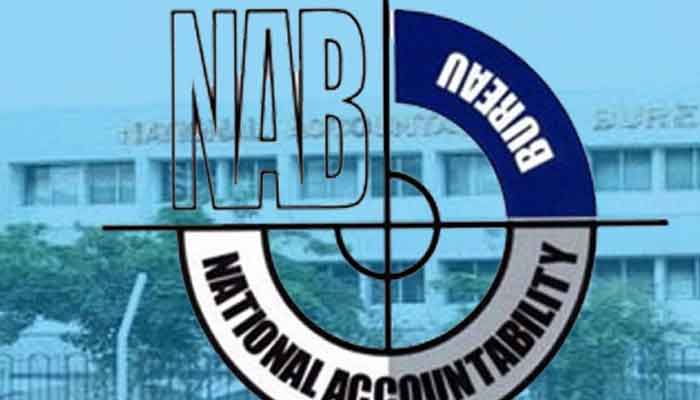NAB physical remand period being shrunk
The third amendment will relate to the voluntary return (VR). Thus the Supreme Court recommended changes in the NAO have gone up to three.
ISLAMABAD: In a major development, the physical remand period of accused persons detained by the National Accountability Bureau (NAB) is being drastically reduced to fourteen days from extraordinarily long duration of three months.
In addition, the bail facility is also being provided to the accused, said a participant of a meeting of the government and opposition parties’ representatives that was held to review the National Accountability Ordinance, 1999 and other laws.
“The government appears inclined to cut down the physical remand duration to 14 days,” former Speaker and senior Pakistan Muslim League-Nawaz (PML-N) leader Sardar Ayaz Sadiq, who attended the discussion, told The News when contacted. He said the government is also willing to give powers to accountability courts to grant bail to the accused arraigned by the NAB.
Ayaz Sadiq was of the view that the government seems to be in a hurry to make these amendments to the NAO to satisfy a recent judgment of the Supreme Court, authored by Justice Asif Saeed Khosa, who will become the chief justice in mid-January. The third amendment will relate to the voluntary return (VR). Thus the Supreme Court recommended changes in the NAO have gone up to three.
In the opinion of legal experts, there is no escape for the government as well as Parliament but to bring about the amendments suggested by the apex court. The Supreme Court has now given one month to the government to do appropriate legislation with regard to the powers of the NAB chairman, allowing VR to a person involved in corruption.
A three-judge bench, headed by Justice Sheikh Azmat Saeed has heard a case for interpretation of Section 25-A of the NAO, which empowers the NAB chairman to accept VR from an accused, who is even allowed to continue his job without departmental proceedings. If the appropriate amendment is not done, the court will give its ruling and it has jurisdiction to strike down any law, violating the Constitution, the panel said.
Justice Azmat Saeed said a crime cannot end through an administrative order and an offence cannot be abolished on approval of VR. The judge noted that the NAB writes letter to the accused persons regarding VRs after initiating inquiries.
Ayaz Sadiq said the government wanted the opposition to approve its amendments. “But we asked it to give us the package and we will give our response on it. He said that the government expressed the view about the amendments recommended by the opposition that these would be taken later and changes should be done piecemeal. “However, we made it clear that all the amendments would be done simultaneously.” The opposition proposed that the absolute authority of the NAB chairman, which is not available to the head of any agency in Pakistan, should be diluted. “We have suggested that a three-member committee comprising the NAB chief, and the Director General of Finance and Law should take decisions instead of one man. It will make the NAB affairs transparent and shun arbitrariness and whimsical conclusions,” Ayaz Sadiq said.
According to him, another recommendation of the opposition is that the office of the prosecutor general should be separated and be made independent and autonomous to take decisions instead of bowing to what the NAB chairman commands. At present, he said, the NAB chief is the sole authority.
The opposition was represented by Rana Sanaullah, Farooq H Naek, Zahid Hamid and Naveed Qamar while Law Minister Farough Naeem, accompanied by some other ministers, spoke for the government.
The meeting also discussed proposed amendments in some other laws that the government is keen to introduce. Justice Khosa suggested in his judgment released in mid-November that in the changed scenario, the legislature may, if so advised, consider amending the NAO appropriately so as to enable an accused person to apply for bail before the relevant accountability court in the first instance. Obviously, the accused will go to the high court and subsequently to the Supreme Court, if he remains aggrieved in this connection.
Justice Khosa wrote that the intention behind introduction of Section 9(b) of the NAO, which ousted the jurisdiction of the superior courts regarding grant of bail, already stood neutralized due to opening of the door for bail through exercise of constitutional jurisdiction of a high court. Resultantly, he noted, the entire burden was being shouldered by the high courts, which was an unnecessary drain on their precious time. He said that the high courts and the Supreme Court had always felt difficulty in adjusting the requirements of “without lawful authority” and “of no legal effect” relevant to a writ of certiorari [Article 199(1)(a)(ii) of the Constitution] with the requirements of bail provided in Section 497 of the Criminal Procedure Code.
The judge also recommended revision of the unrealistic timeframe [thirty days] for conclusion of a trial as specified in Section 16(a). It has never happened that an accountability court decided a reference within thirty days.
-
 Jamie Lee Curtis Doubles Down On Her Assertion About 'The Bear's Imminent End
Jamie Lee Curtis Doubles Down On Her Assertion About 'The Bear's Imminent End -
 Nicole Kidman Reacts To Daughters' Possible Future In Hollywood
Nicole Kidman Reacts To Daughters' Possible Future In Hollywood -
 Harry Styles Weighs In On The Origins Of His Muse While Talking About 'Carla’s Song' From Upcoming Album
Harry Styles Weighs In On The Origins Of His Muse While Talking About 'Carla’s Song' From Upcoming Album -
 New Research Suggests Global Sea Levels Have Been Underestimated Due To Flawed Modelling
New Research Suggests Global Sea Levels Have Been Underestimated Due To Flawed Modelling -
 Meghan Markle Elated As ‘As Ever’ Proves To Be ‘double Edged Sword’
Meghan Markle Elated As ‘As Ever’ Proves To Be ‘double Edged Sword’ -
 Gulf Shipping Crisis Deepens Amid Geopolitical Tensions: Can Global Powers Manage Oil Supply Shortfall?
Gulf Shipping Crisis Deepens Amid Geopolitical Tensions: Can Global Powers Manage Oil Supply Shortfall? -
 Nicole Kidman Suffers From An Alarming Condition As She Experiences Emotional Fallout Amid Keith Urban Split
Nicole Kidman Suffers From An Alarming Condition As She Experiences Emotional Fallout Amid Keith Urban Split -
 Tom Brady's Friends Warn Him About Alix Earle's Real Intentions Following Romance Rumors
Tom Brady's Friends Warn Him About Alix Earle's Real Intentions Following Romance Rumors -
 Khloe Kardashian Shares Update On ‘Daddy’ Back Tattoo Removal
Khloe Kardashian Shares Update On ‘Daddy’ Back Tattoo Removal -
 Fortnite Returns To Google Play Worldwide After Google, Epic Games Settle Dispute
Fortnite Returns To Google Play Worldwide After Google, Epic Games Settle Dispute -
 Demi Lovato Reflects On Being Compared To Miley Cyrus, Selena Gomez During Disney Days
Demi Lovato Reflects On Being Compared To Miley Cyrus, Selena Gomez During Disney Days -
 Prince William Envision More ‘accountability’ When He Makes King
Prince William Envision More ‘accountability’ When He Makes King -
 Brad Pitt Eager To Win Fight Over Daughter Shiloh As His War Against Angelina Jolie's Influence On Kids Continues
Brad Pitt Eager To Win Fight Over Daughter Shiloh As His War Against Angelina Jolie's Influence On Kids Continues -
 Teddi Mellencamp Shares Worrisome Update Amid Stage 4 Cancer Battle: 'I Thought I Had Flu'
Teddi Mellencamp Shares Worrisome Update Amid Stage 4 Cancer Battle: 'I Thought I Had Flu' -
 US, UK Split On Crypto Collaboration: Can Bitcoin Help Secure A New Deal?
US, UK Split On Crypto Collaboration: Can Bitcoin Help Secure A New Deal? -
 Harry Styles Gets Candid About Liam Payne's Death: 'I Really Struggled At First'
Harry Styles Gets Candid About Liam Payne's Death: 'I Really Struggled At First'




